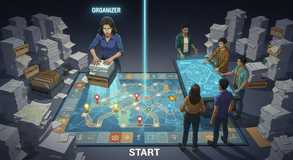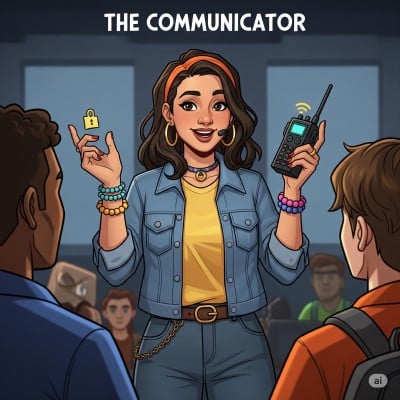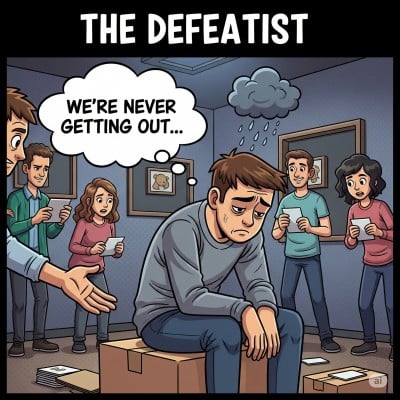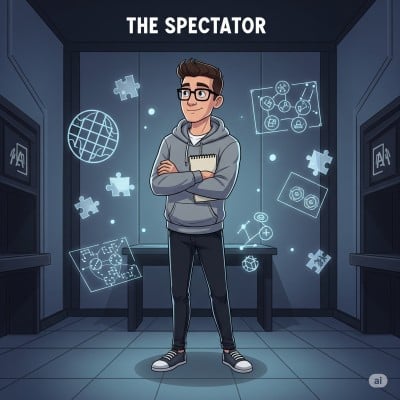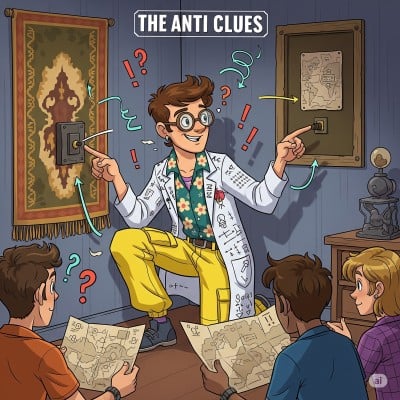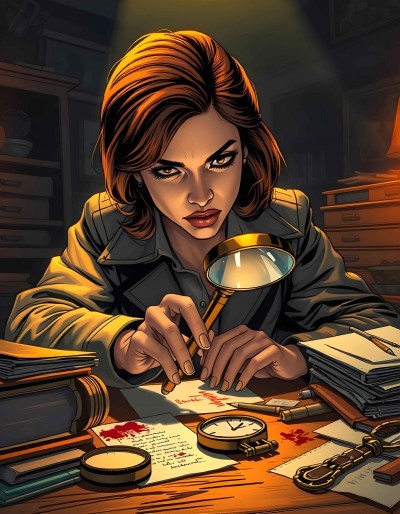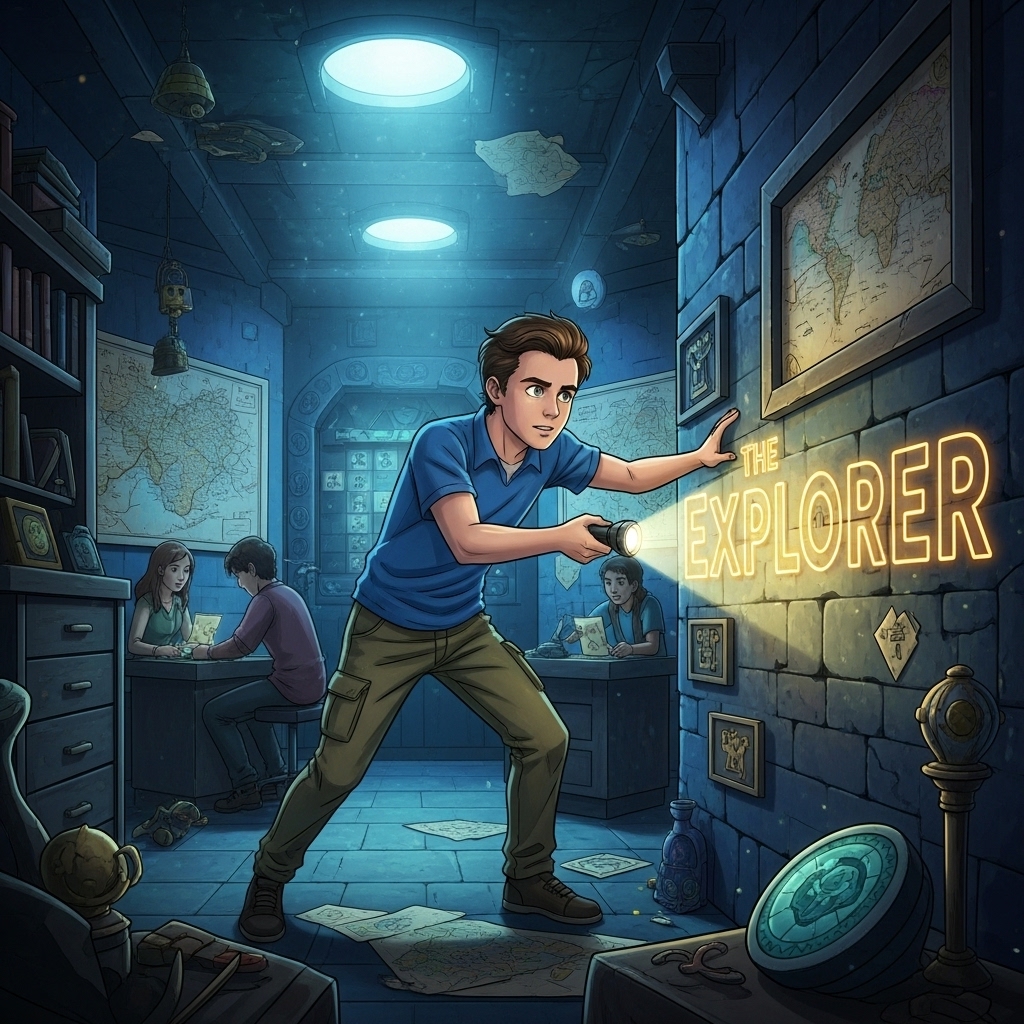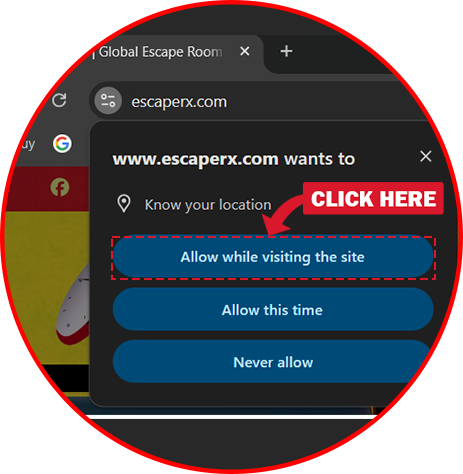In the high-energy storm of an escape room, every team risks being pulled in multiple directions at once 🎯. One player is rifling through drawers, another is deciphering codes, and someone else is debating whether a clue even matters. In this whirlwind, progress can quickly dissolve into chaos 🔢 🧠. That’s where The Organizer steps in. They are the anchor the one who transforms scattered energy into coordinated momentum, ensuring the team moves with clarity rather than confusion ⚓.
The Organizer is not necessarily the loudest or most commanding presence in the room. Their strength lies not in dominance 👑, but in structure and foresight. They see the broader picture when others are buried in details, and they ensure that the puzzle-solving process remains efficient and purposeful. In short, they turn a group of individuals into a cohesive unit ➡ ️ 🤝.
For those who naturally embody the Organizer persona, it’s important to recognize that this role is about enabling 🧾, not controlling. An effective Organizer does not micromanage or dictate every action; instead, they create a framework where every teammate can contribute their strengths. They make sure the Puzzle Buster has the right pieces in front of them, the Finder’s discoveries are acknowledged, and the Strategist’s plans are communicated to the group. In this way 🤫 👑, the Organizer becomes a quiet leader one whose influence is felt in every efficient step forward.
The psychological value of the Organizer cannot be overstated. Escape rooms are designed to overwhelm, to make players feel pressed for time and overloaded with information. Without someone to cut through the noise, teams can panic, bicker, or lose sight of the bigger picture. The Organizer combats this by providing calm and structure. Their presence reassures teammates that, no matter how chaotic things feel, there is a plan in place and progress is being made.
For teams, learning to appreciate the Organizer is crucial 😰. Their work may not always be flashy they may not crack the final code or pull the hidden lever that opens the last door but their steady guidance often ensures the group reaches that point at all 🔇 ✂ ️. Many failed escapes come not from a lack of intelligence or effort, but from disorganization. The Organizer is the safeguard against this, keeping the entire experience flowing smoothly 📈 ✨.
Escape rooms are not simply about solving riddles or breaking locks; they are about the art of collective effort. And in that art, the Organizer’s structured hand ensures that the team’s energy is not wasted but channeled into success.
In the end, the Organizer may not be the one remembered for the dramatic final move, but without them 💪 ❌, that moment may never arrive. They are the steady pulse beneath the frenzy, the quiet superpower that ensures chaos becomes collaboration. And in the world of escape rooms, collaboration is the key that opens every door 🌊.
At its core, the Organizer’s role has three pillars: systems, clarity, and focus.
The Organizer sets up a way to handle the flood of information and objects in the room 🤝 ✨. Found items are placed in a central location, solved clues are separated from unsolved ones, and every discovery is logged or verbalized. These simple systems prevent duplication of effort and keep the group on track 🔑 🚪.
When the team feels overwhelmed by multiple leads or a room full of half-solved puzzles, the Organizer brings order. They identify what has been attempted, what is still open, and what priorities make the most sense given the time remaining 🏛 ️.
The Organizer ensures that energy is channeled productively 🧪. If two players are spinning in circles on the same puzzle, the Organizer may redirect someone to explore another path. Their guidance helps prevent wasted effort and keeps the team advancing toward the exit 📝.





